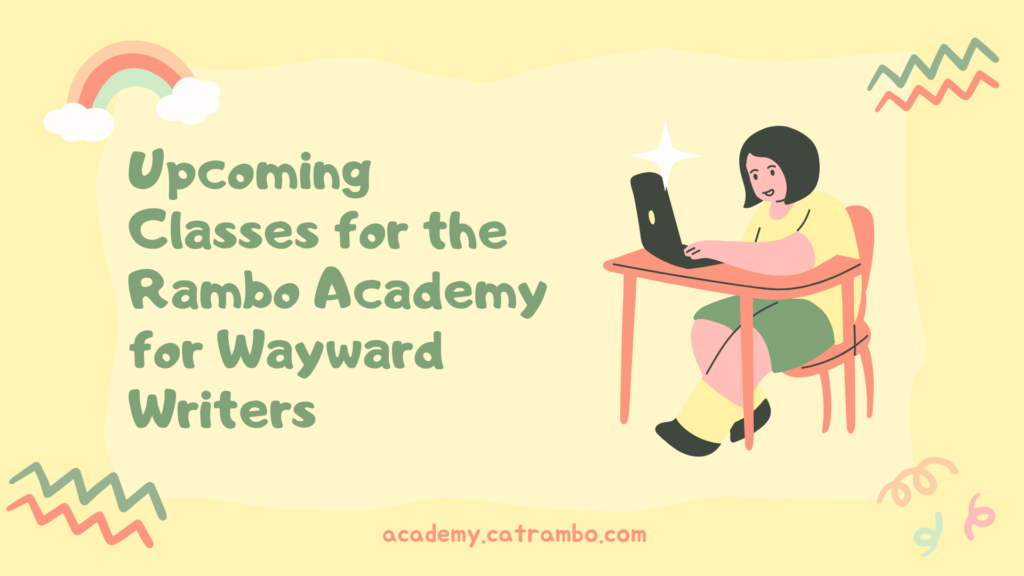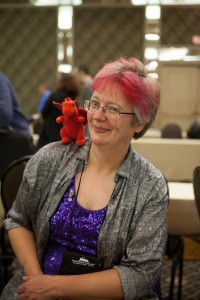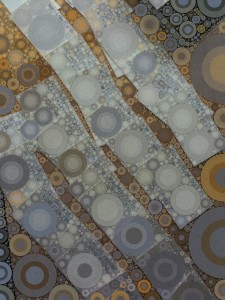

Making Wormhole Lite More Accessible
People told me the way we had Wormhole Lite configured didn’t work so well, because of time differences. So I’ve swapped things around and made it so you can get the recordings and not worry about time zones, but instead watch them at your leisure, because I’ve also extended the amount of time they’ll be available from 30 days to three months.
You can take them individually or as a group – and best of all, we implemented sliding scale so more people can afford it. Please check out what’s available and spread the word if you know people who might be interested.
Who’s teaching what?
 Results of Our First Pitch Session
Results of Our First Pitch Session
Based on a suggestion, The Rambo Academy hosted a special practice pitch session. People submitted their pitches ahead of time and I read each one out loud, then we took 5 minutes or so to discuss each one after it had been read. We had an amazing time with this, and people found that having their pitch read out loud and being able to discuss it without people knowing it was there was comfortable and productive. Speaking as a teacher, it was a great session, full of good energy.
I plan to do one of these every other month going forward, so keep it in mind when you’re getting ready to develop a pitch for your novel.

If you’re a Patreon supporter, remember that this month we’re discussing Karen Joy Fowler’s “Standing Room Only.” There’s a Wednesday session and a Saturday one; both will be recorded for people that can’t make it.
Also for Patreon supporters, we have a special talk this month with Michael R. Underwood discussing American writers and unions – why we can’t unionize, and what we can do about it. The date had to get moved, and it’s now October 24th at 12 PM Eastern time.
Want to join us? Details here.
 This weekend’s classes are:
This weekend’s classes are:
Sign up for both of Sunday’s classes for a total cost of $99! All class recordings are available to Patreon supporters for $40 or $50 for non-supporters.
Find the full list of upcoming classes here.
Find the list of available videos here.

In November, Jennifer Brozek will be leading the Wednesday Writing Games session. Come play and write for an hour in a comfortable and enjoyable session designed to kickstart your creativity! See the Patreon schedule to find out how to join.
Want to find me on your favorite social network? Here’s all the places I have a presence, along with other pertinent links.
...
Information about the Wayward Wormhole Intensive Writing Workshop
 There’s a stillness atop Sant Bartomeu hill that settles my bones and calms my brain. At 998 meters above sea level, I lean against a centuries-old stone wall, part of the Castell de Llaés, and look across the fields below. Thirty-nine km to the right is a second hill of 1025 meters, where I can see remains of the castle of Besora as it sits alone with its past. In the other direction, at 961 meters, sits the medieval remains of Castell de Milany. With the slightest effort, I lower a cellophane sheet over the scene and add people in tunics walking with horses wearing baroque saddles. A second overlay adds dusk and wispy tendrils of cloud to the picture. Torches flare along the castle walls to both sides of me, and the glow of a central fire, ready to send messages across the gap between them as night descends. -Janet K. Smith
There’s a stillness atop Sant Bartomeu hill that settles my bones and calms my brain. At 998 meters above sea level, I lean against a centuries-old stone wall, part of the Castell de Llaés, and look across the fields below. Thirty-nine km to the right is a second hill of 1025 meters, where I can see remains of the castle of Besora as it sits alone with its past. In the other direction, at 961 meters, sits the medieval remains of Castell de Milany. With the slightest effort, I lower a cellophane sheet over the scene and add people in tunics walking with horses wearing baroque saddles. A second overlay adds dusk and wispy tendrils of cloud to the picture. Torches flare along the castle walls to both sides of me, and the glow of a central fire, ready to send messages across the gap between them as night descends. -Janet K. Smith
...
Neil Gaiman has been catching a lot of flack for this tweet.
People are, understandably, saying that the equation clarion + student = pro writer is not the only way you can reach that particular sum, and they are absolutely correct, although the drama is — as is often the case on the Internet — a bit hyperbolic.
This is the fact of F&SF (and any other genre) writing — there are writers disadvantaged by gender, or race, or sexuality or other physical circumstances. But there’s also a big group — which contains a disproportionate number of those differing physically — affected by economic issues.
Here are two simple facts:
But there is nothing being taught at a workshop that you cannot pick up by yourself, given time, though it is true that workshop teaching can often be inspirational, effective, and sometimes entirely life-changing.
Being able to attend a convention or workshop is not just a matter of being able to pay the substantial fee. It’s being able to travel and most importantly — it’s being able to take time away from both work and family. That’s an incredible privilege.
I came through Clarion West in 2005. My instructors were (in chronological order) Octavia Butler, Andy Duncan, L. Timmel DuChamp, Connie Willis, Gordon Van Gelder, and Michael Swanwick. I am a pretty convivial person, and remain close friends with the majority of my instructors. I also was part of a talented class that included E.C. Myers (winner of the Andre Norton Award for his book Fair Coin), Rachel Swirsky (frequent nominee and winner of things) and goddamn Ann Leckie, whose Ancillary series has set the bar for success so high the rest of us are just going, “Yeah right.”
I was able to do this because I had a partner willing to let me quit my job and try writing for a while. A decade later, I have yet to make half of what my Microsoft salary was through writing; I continue to persevere. If I had a family to support, it would have been incredibly difficult to do it — perhaps simply impossible. It gave me an advantage, and it also kicked me in the ass to be productive, because I was intensely aware of just how lucky I was.
Neil is — obviously — not saying you can’t be a writer without such a workshop. Note that Gaiman himself did not go to such a workshop, as far as I know. He is, though, enthused about the workshop (as befits a former instructor) and aware of what a big advantage it can prove.
But it also depends on what you make of it. In any class there will be those who persevere and those who fall by the wayside. Of the people in my writing workshop from decades ago at Hopkins, only a handful are still writing. Ten years later, a few members of my Clarion West class seem to have dropped off the face of the planet.
You have to want it hard enough to work for it, no matter what. You have to be willing to make time for writing words down and thinking about the order and what happens when you rearrange them. You have to have a hide hard enough to survive the day when there’s three rejections plus a nice fan letter whose writer is confused and thinks you’re someone else with a similar name. You have to be willing to trim away some bullshit activities and substitute stuff that lets you work at your craft, like reading or taking online classes or whatever. That’s the part you need.
A while back, I read someone saying that we all have someone who gives us permission to call ourselves a writer. For me, it was John Barth: sitting in his sunlit Hopkins office, a bookcase framing his smiling, balding head talking about my stories and a fellowship he wanted me to apply for is something I will always remember. But that is less important than giving yourself permission to call yourself a writer. It’s harder — it requires a certain amount of adamant ego and determination — but that permission can — and must — come from inside as well as externally. That’s the most important component, and you can do it with or without the aid of a workshop.
TL;DR version? Ain’t nothing going to substitute for hard work. Why aren’t you writing?
Later addendum: Most of the workshops do offer some scholarships; if there’s one you’re interested in, I do suggest asking about what financial aid is available.
...
Here’s another video, this time for the Literary Techniques for Speculative Fiction Online Class. This is my favorite so far.
Discussion and in-class writing exercises designed to introduce a number of techniques to use in your own writing such as foreshadowing, alliteration, rhythmic device, allusion, etc, and ways to test them out in short fiction as well as discussion of when and where to use them.
...

I’m sorry. I really am. I know it’s a great story. But here’s some reasons why I’m not thrilled by your offer to let me read it.
I do read fast, but I have a lot to read. I’m reading for the Norton Award this year, which has meant an onslaught of books. I’m reading to stay abreast of the field and so I can make intelligent award nomination decisions. And I’m reading for my own pleasure.
You’re not asking me to read it, really, but also to critique it. That takes time, and even just a little crit is a piranha-like bite out of a day already besieged.
You’re asking me to do it for free. I charge to critique stories. Right now I’m not taking any, because I want to focus on my own work. The same goes for Kickstarters asking me for crits as donation incentives this year. I got bit in the butt with a bunch of these all at once, and it’s just not working for me. I’ll revisit this policy in 2015.
You may not want to hear what I have to say. A few years ago someone pressed a manuscript in my hands, and I took the time to go through it pretty thoroughly and explain why it wasn’t ready for primetime and what changes needed to be made. The recipient made it clear that he’d been wanting to hear praise and market suggestions. That was a bit discouraging.
I am not in a position to publish your story. If that’s what you’re hoping, I’m not currently editing a magazine and the couple of editing projects I have coming up are pretty specific in theme. It is extremely unlikely that I will read your story, shout “Huzzah!” and send it off to another editor saying they should buy it.
If you absolutely must have me read your story, you do have the option of taking my workshop. I offer plenty of classes and there’s new sections of both the Writing F&SF Stories and the Advanced Workshop opening soon.
This is hard for me because I have a difficult time saying no to requests. But they add up into vast piles of undone work that dampen all productive effort. So despite all the convulsions and pain this is causing my inner Midwesterner, who desperately wants to be polite… save us both the trouble and send it to your crit group. At least for now. Okay?
...

Overall:
Characters:
World:
Enjoy this writing advice and want more content like it? Check out the classes Cat gives via the Rambo Academy for Wayward Writers, which offers both on-demand and live online writing classes for fantasy and science fiction writers from Cat and other authors, including Ann Leckie, Seanan McGuire, Fran Wilde and other talents! All classes include three free slots.
Prefer to opt for weekly interaction, advice, opportunities to ask questions, and access to the Chez Rambo Discord community and critique group? Check out Cat’s Patreon. Or sample her writing here.
...

Help them exercise their creativity. Provide them with clay, paints, fabric, glitter glue, sketchbooks, pens of magnificent and splendid color. Try Daniel Smith or the U. Bookstore for great selections.
A donation in their name to an appropriate charity. I like Heifer.org, Kids Need to Read, and Kiva.
For the power traveler perpetually on publicity tour, an Aerotray, a solar phone charger, a Tom Bihn bag, or a set of GoGear travel bottles.
Time. Either spend some time with them (take them out for lunch, dinner, to the zoo, up in a balloon, out for coffee and chat, on a cruise) or save them some time (sign them up for a delivery service, offer to baby-sit, help out with errands or household work). Or offer them proof-reading/copy-editing time.
Learning, via a gift certificate for my online classes. Right now through January 1st, 2014, mention this post on social media or in a blog (or spread the word some other way) and you’re entitled to a special deal. Buy two, get one free (one day workshops only) OR enroll in Writing F&SF or Advanced and get a free one day workshop.
Upcoming classes include the six week workshops Writing Fantasy & Science Fiction and Advanced Workshop and these one day workshops: Building an Online Presence for Writers, Character Building, Editing 101, First Pages Workshop, Flash Fiction Workshop, Literary Techniques for Genre Fiction, Moving Your Story from Idea to Finished Draft, and Podcasting 101. See here for dates.
...

Podcasting Basics
Podcasts, both audio and video, are an increasingly popular way to reach an audience. In this two hour session, learn what you need to know to record and edit your own podcast, how to promote your podcast, and what equipment and software to use. As Folly Blaine, Christy records and acts as Podcast Manager for Every Day Fiction, and has also recorded podcasts for Beneath Ceaseless Skies, Wily Writers, and This Mutant Life; Cat is the former fiction editor of Fantasy Magazine and has recorded podcasts for Clarkesworld, Beneath Ceaseless Skies, and Fantasy Magazine. Limited enrollment ““ reserve a slot now!
Sunday, 9:30-11:30 AM PST, February 9
$99
Why might you be interested in podcasting and learning to do your own? Here’s a few reasons:
When publicizing “Five Ways to Fall in Love on Planet Porcelain,” I made sure it was available in audio form. Did that help earn it a Nebula nomination? I don’t know, but it certainly didn’t hurt.
Enjoy this advice for writers and want more content like it? Check out the classes Cat gives via the Rambo Academy for Wayward Writers, which offers both on-demand and live online writing classes for fantasy and science fiction writers from Cat and other authors, including Ann Leckie, Seanan McGuire, Fran Wilde and other talents! All classes include three free slots.
Prefer to opt for weekly interaction, advice, opportunities to ask questions, and access to the Chez Rambo Discord community and critique group? Check out Cat’s Patreon. Or sample her writing here.
...
 The first session of this class went well! Nisi Shawl was a terrific guest speaker.
The first session of this class went well! Nisi Shawl was a terrific guest speaker.
In talking about reviews, we talked about good reviews and what they do. Here’s the notes from that.
Other topics we touched on: how you get started doing book reviews, what limits to have regarding spoilers, how to write a negative review well, promoting yourself and your reviews, networking, how to evaluate reviews, and the best way(s) to get better at reviewing. I thought it went really well and had plenty of interesting conversation and questions.
The next Art of the Book Review online class will happen Sunday, March 30, 9:30-11:30 AM PST. Nisi will be appearing as a speaker for the class in this session as well.
...
 A metaphor that I was exposed to at Clarion West (now nearly a decade ago) still works beautifully for me, and it’s one I use when teaching: the idea of the writer’s toolbox.
A metaphor that I was exposed to at Clarion West (now nearly a decade ago) still works beautifully for me, and it’s one I use when teaching: the idea of the writer’s toolbox.
In my mind’s eye, it’s a big red metal tool chest, small enough to be carried around, large enough that you wouldn’t want to HAVE to carry it around all the time. Inside, drawers lift out to reveal neatly packed devices and tools, each in their own padded slot.
There’s a blade capable of lopping off awkward paragraphs, and sharper, tinier words designed for work at the sentence level, trimming beginnings till they catch a reader like a fish hook and pull them into the story. There’s a box of punctuation marks, with a special slot for the semicolons. There’s the intricate device of an unreliable narrator, calculated to wobble like a gyroscope yet still remain true to the story’s course. There’s a set of filters, each one a specific point of view, each letting you cast a section in a different light. And a layer of ornamental gadgetry: epigraphs and scraps of poetry. And a valuable gimlet, capable of drilling down to a character’s motivation: the question, “What does s/he WANT?”
Even this metaphor’s a device (and if you want to know more about metaphor, I can do no better than point you at Chuck Wendig’s excellent piece, in which he’s said everything I’d say and then quite a bit more).
I’ve been thinking about it in going over notes for the class on Literary Techniques in Genre Fiction, because my aim in that is two-fold: to give students not just a whole bunch of new tools, but some sense of when to use them and a chance to experiment with them. Because a device shouldn’t be separate from a story, but an integral part of it, something that adds more to it than just a chance to see the writer being clever.
To push the metaphor a little further, stories are like furniture, only without the useful part, like being able to sit on them. You want them to feel like a single piece, not a table with some drawers and ornamental hinges glued on it. In the class, I try to introduce new tools students may not have (consciously) worked with before, including defamiliarization, hyperbole, synthesia, and a lot of other fancy words. And I also try to expand a drawer they’ve already got partially filled: sources of creative inspiration.
Enjoy this writing advice and want more content like it? Check out the classes Cat gives via the Rambo Academy for Wayward Writers, which offers both on-demand and live online writing classes for fantasy and science fiction writers from Cat and other authors, including Ann Leckie, Seanan McGuire, Fran Wilde and other talents! All classes include three free slots.
Prefer to opt for weekly interaction, advice, opportunities to ask questions, and access to the Chez Rambo Discord community and critique group? Check out Cat’s Patreon. Or sample her writing here.
...
Want access to a lively community of writers and readers, free writing classes, co-working sessions, special speakers, weekly writing games, random pictures and MORE for as little as $2? Check out Cat’s Patreon campaign.

"(On the writing F&SF workshop) Wanted to crow and say thanks: the first story I wrote after taking your class was my very first sale. Coincidence? nah….thanks so much."

(fantasy, novelette) She was thinking complicated thoughts now, about things she was not sure that dryads ever contemplated: what it would be like to take an axe to a sailor, to cut a human down as they had cut her tree down. Sometimes they were so close. But there were so many of them, and she was chained.


This site is protected by reCAPTCHA and the Google Privacy Policy and Terms of Service apply. This site is a participant in the Amazon Services LLC Associates Program, an affiliate advertising program designed to provide a means for sites to earn advertising fees by advertising and linking to Amazon.com.